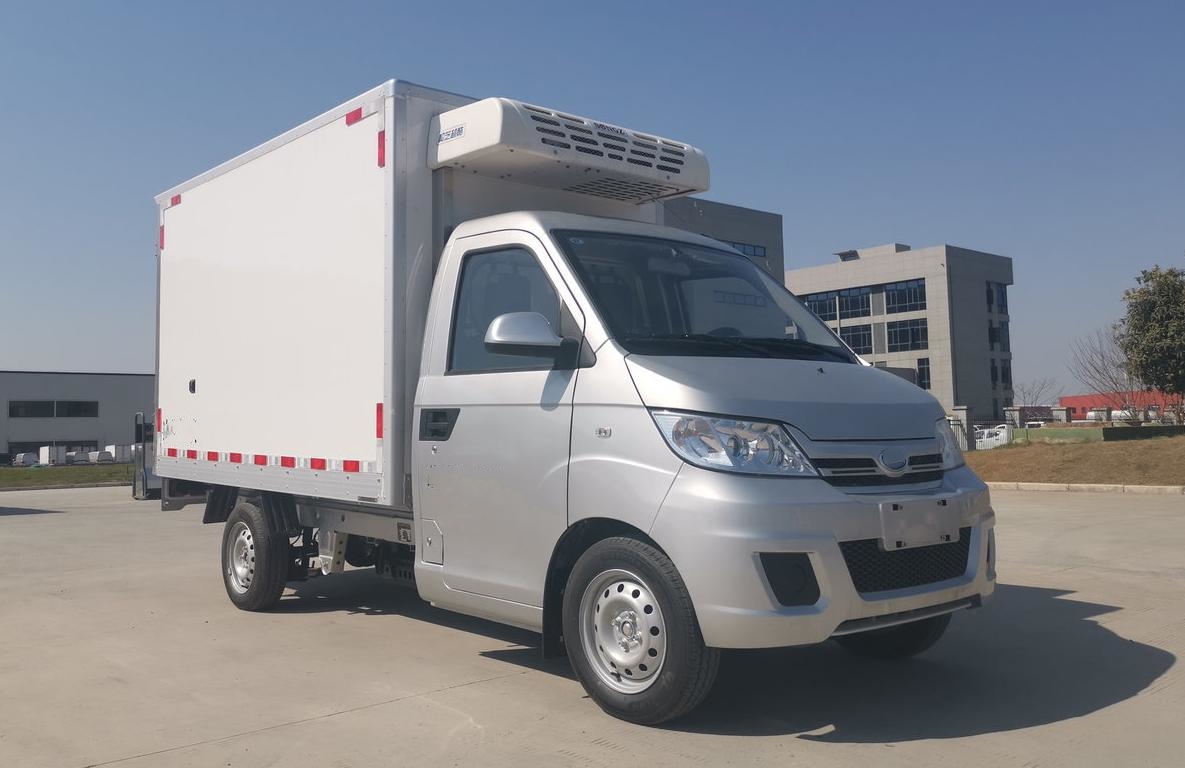Nuhou Kaa Uila
How to maintain new energy vehicles in spring? Master these methods!
Kau ʻia ma na Na Kaa Uila
As the old saying goes, the whole year’s work depends on a good start in spring. For car enthusiasts and owners who truly cherish their vehicles, the arrival of spring brings significant changes in temperature and humidity. Failing to perform timely maintenance can potentially leave hidden troubles that could affect the health and performance of the car throughout the coming year. When faced with these “invisible hidden dangers,” we must not take them lightly. Today, let’s share some essential spring maintenance tips for new energy vehicles to ensure the safe travel of car owners.
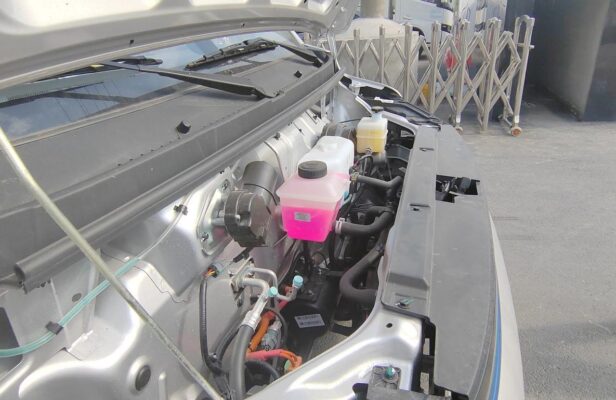
Paint surface maintenance:
In spring, the waterproofing work for the car’s paint is of utmost importance and cannot be overlooked. Spring is a season with more rainfall, and the acidic components present in the rain have an extremely strong corrosive effect on the car’s paint. If there are scratches or abrasions on the car body, it becomes even more likely to lead to rust formation. The simplest and most effective maintenance method is waxing. Applying a layer of wax to the car’s surface creates a protective barrier that helps repel water and reduces the direct contact of the paint with acidic rainwater. This not only enhances the shine and appearance of the car but also provides a certain degree of protection against corrosion.

If you desire a longer-lasting protection for your car’s paint, you can consider performing glaze sealing beauty treatment. This process involves applying a special glaze or sealant to the paint surface, which forms a tougher and more durable layer. The glaze sealing treatment can help lock in the color and luster of the paint, resist scratches and minor abrasions, and provide better protection against environmental factors such as rain, UV rays, a me ka lepo.
ʻo kahi laʻana, imagine a car parked outdoors during a spring rainstorm. Without proper paint protection, the rainwater can seep into tiny scratches on the car’s body, gradually causing the metal underneath to rust. Eia naʻe, if the car has been waxed or undergone glaze sealing treatment, the water will bead up and roll off the surface more easily, reducing the risk of corrosion.
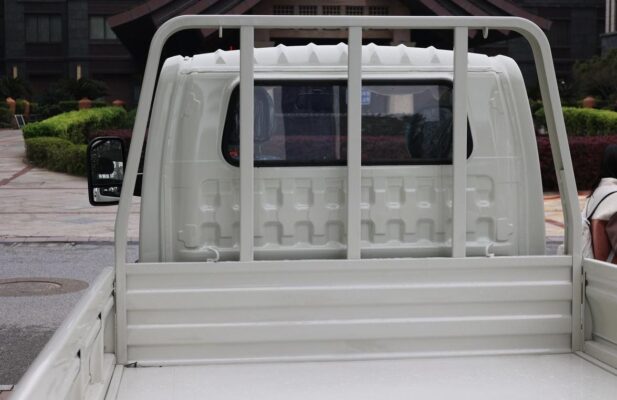
Replace the air conditioning filter element:
After a long winter, a significant amount of dust, pollen, and bacteria can accumulate in the air conditioning filter element. The air conditioning filter element in new energy vehicles often contains activated carbon, which is designed to adsorb fine particles and harmful substances. Eia naʻe, as time passes and with increased usage, the effectiveness of the activated carbon gradually diminishes. If the air conditioning filter element becomes too dirty, it can lead to several problems. Firstly, it can cause a decrease in the cooling effect of the air conditioning system, making the interior of the car less comfortable during hot spring days. Secondly, it can produce an unpleasant odor, affecting the driving experience and the health of the occupants. Eia kekahi, extremely dirty air conditioning filters can even be harmful to human health, as they may release trapped pollutants back into the air circulation.
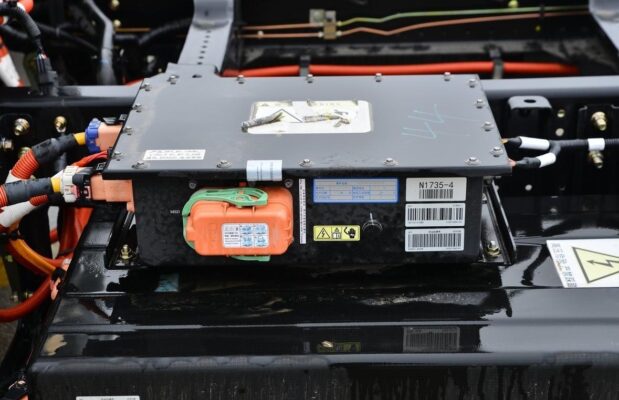
To address these issues, it is crucial to replace the air conditioning filter element regularly. This simple maintenance step can greatly improve the performance and air quality of the vehicle’s air conditioning system. By ensuring a clean filter, you can enjoy cool and fresh air inside the car, free from dust, pollen, and unpleasant odors.
ʻo kahi laʻana, consider a driver who has been using the car’s air conditioning throughout the winter without replacing the filter. As spring arrives and the air conditioning is turned on again, the driver may notice a weaker cooling effect and a musty smell. By replacing the air conditioning filter element, the driver can immediately notice an improvement in the air quality and cooling efficiency, providing a more pleasant driving environment.

Cleaning and inspection:
Charging port:
The charging interface of new energy vehicles should be kept clean at all times. A dirty charging port can easily cause an internal short circuit, which can have a negative impact on the charging process and even affect the service life of the battery. Dust, dirt, and moisture can accumulate on the charging port over time, increasing the risk of electrical problems. Regular cleaning of the charging port with a soft cloth or a specialized cleaning tool can help remove any debris and ensure proper electrical contact.
In addition, it is essential to pay attention to the waterproof and rainproof measures of the charging place. When charging, make sure the area is protected from rain and moisture. Avoid charging in areas where there is a risk of water accumulation or exposure to rain. Keeping the charger ventilated is also important to prevent overheating and ensure safe charging. In short, taking good care of the charging interface in spring is crucial for the proper functioning and longevity of new energy vehicles.
ʻo kahi laʻana, if a charging port is left dirty and exposed to moisture, it may lead to a malfunction during charging. This could result in a delay in charging or even damage to the battery. By keeping the charging port clean and ensuring a proper charging environment, car owners can avoid such issues and ensure a smooth charging experience.
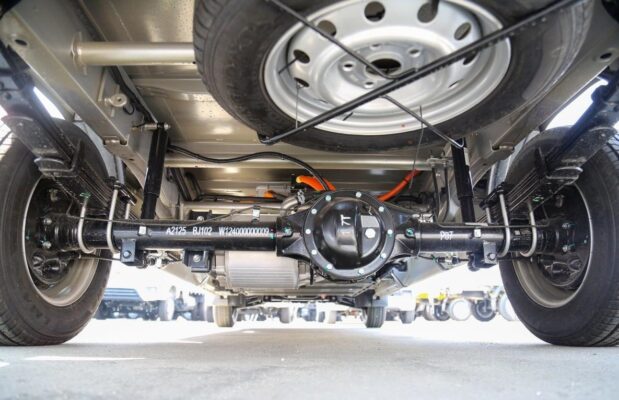
Inspect the battery pack and electrical system:
Compared to traditional fuel vehicles, new energy vehicles generally have less maintenance content in terms of mechanical components. Eia naʻe, one of the most important aspects of maintaining new energy vehicles is inspecting the battery and the electrical system in the car. In spring, it is advisable to take the car to the 4S store regularly and have professionals check whether there is any fault information in the vehicle’s electrical system and battery pack.
The battery is the heart of a new energy vehicle, and its performance and health directly affect the vehicle’s range and overall functionality. During the inspection, technicians can use specialized diagnostic tools to detect any potential issues such as battery degradation, abnormal voltage levels, or faulty connections. If a problem is detected, it should be dealt with promptly to clear the fault code and ensure that the vehicle is always in a healthy state.
ʻo kahi laʻana, suppose a new energy vehicle owner notices a decrease in the vehicle’s range or charging time. By taking the car to the 4S store for an inspection, it may be discovered that there is a problem with the battery pack or electrical system. Timely diagnosis and repair can prevent further damage and ensure the reliable operation of the vehicle.

Check the tire condition:
As we all know, maintaining proper tire pressure is crucial for both the safety and performance of any vehicle. In the case of new energy vehicles, insufficient tire pressure can not only increase power consumption but also accelerate the abnormal wear of the car tires. After a long winter, the tire pressure may decrease due to changes in temperature. When spring arrives, it is essential to adjust the tire pressure in a timely manner.
Checking the tire pressure regularly and ensuring it is within the recommended range specified by the vehicle manufacturer can help improve fuel efficiency, extend tire life, and ensure stable handling and braking. If necessary, car owners can equip their vehicles with a portable air pump, which allows for easy inflation and deflation to maintain normal tire pressure. This can be particularly useful when on the go or in situations where a nearby gas station may not have a proper tire inflation facility.
ʻo kahi laʻana, imagine a new energy vehicle with underinflated tires. This can lead to increased rolling resistance, which in turn requires more energy from the battery to move the vehicle. By maintaining proper tire pressure, the vehicle can operate more efficiently, reducing power consumption and increasing the range.

The importance of regular vehicle maintenance cannot be overstated. The Qingming Festival holiday is approaching soon. Before friends embark on their trips and outings, it is crucial to remember to give your car a comprehensive safety inspection. This includes checking the paint surface, air conditioning system, battery pack, electrical system, and tire condition. By performing these inspections, you can identify any potential issues early on and address them before they become major problems. Only in this way can there be an extra guarantee for a safe and enjoyable journey on the road.
I ka hopena, proper spring maintenance of new energy vehicles is essential for ensuring their optimal performance, longevity, and safety. By paying attention to paint surface protection, replacing the air conditioning filter element, cleaning and inspecting the charging port, checking the battery pack and electrical system, and maintaining proper tire pressure, car owners can keep their new energy vehicles in top condition. This not only provides a better driving experience but also helps protect the environment by ensuring the efficient operation of these eco-friendly vehicles. No laila, let’s take the time to give our new energy vehicles the care they deserve this spring.
